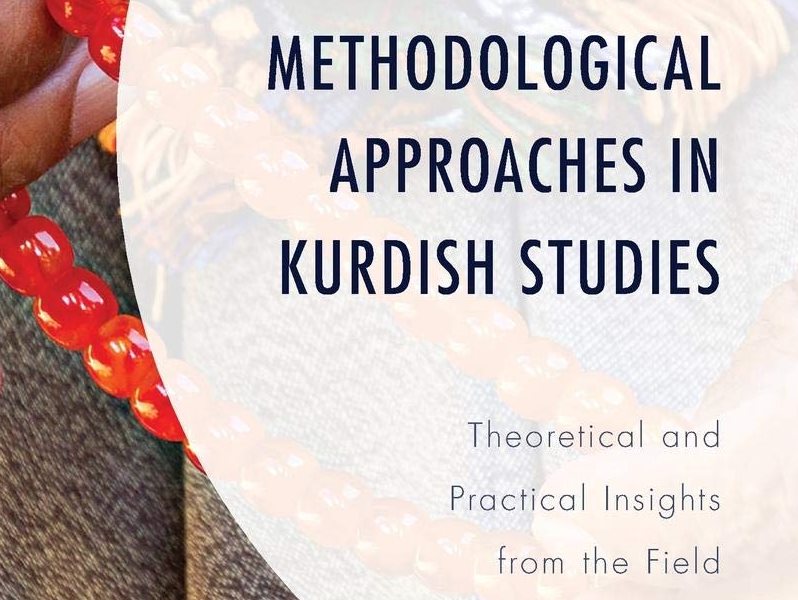
This event launches the book Methodological Approaches in Kurdish Studies: Theoretical and Practical Insights from the Field. It is a volume that presents thirteen contributions that reflect upon the practical, ethical, theoretical and methodological challenges that researchers face when conducting fieldwork in settings that are characterized with deteriorating security situations, increasing state control and conflicting inter-ethnic relations. More precisely, they shed light to the intricacies of conducting fieldwork on highly politicized and sensitive topics in the region of Kurdistan in Iraq, Syria and Turkey as well as among Kurdish diaspora members in Europe.
The complexity of security situations, and the atmospheres of distrust and suspicion have led the contributors to be creative and to adapt their research methods in ways that at times transcend disciplinary boundaries and conventions. Relatedly, the contributions also open the often-considered Pandora’s box of discussing the failures in what is often a “messy” research field, and how to adopt one’s methods to rapidly changing political circumstances. This necessitates greater reflexivity in existing power relations of the surrounding context and how those affect not only the interaction situations between the researcher and the participants, but also raise questions for the overall research process, concerning namely social justice, representation and knowledge production. The contributions unravel this by unpacking positionalities beyond ethnicities, discussing how gendered and other positionalities are constructed in fieldwork interactions and by illustrating how the surrounding structures of power and dominance are present in every-day fieldwork. What differentiates this book from the existing literature is that it is the first academic endeavor that solely focuses on methodological reflections aimed to the field of Kurdish Studies.
Bahar Baser is associate professor at the Centre for Trust, Peace and Social Relations, Coventry University. She is also an associate research fellow at the Security Institute for Governance and Leadership in Africa (SIGLA), Stellenbosch University, South Africa. Bahar’s research interests include ethno-national conflicts and political violence, conflict resolution, third party mediation, migration and diaspora studies. Her book “Diasporas and Homeland Conflicts: A Comparative Perspective” was published by Routledge in 2015. Hew current research projects are: Kurdistani Jews in Israel (funded by the CBRL) and Youth, Violence and Conflict Transformation: Exploring mobilisation into violence and the role of youth in peacebuilding (funded by the Ferguson Trust). She is the co-editor of Edinburgh Studies in Diasporas and Transnationalism Series published by Edinburgh University Press.
Yasin Duman is a Ph.D. candidate at the Center for Trust, Peace, and Social Relations (CTPSR), Coventry University. His research focuses on the role of intergroup relations in the integration of Syrian refugees in Turkey. Along with his academic studies, Yasin has also been working as psychosocial support (PSS) consultant providing consultancy services to the international humanitarian organizations in Turkey including IOM and WHH. In 2014-2015, Yasin conducted fieldwork in northeast Syria, Rojava, for his master's thesis that examined the emergence of democratic autonomy and how it addresses local conflicts.
Begüm Zorlu is a PhD candidate and a teaching assistant in the department of International Politics at City, University of London. Her research focuses on political parties and contentious politics in Latin America and the Middle East. She is interested in the dynamics of peace processes, foreign policy and documentary photography. Her work can be seen on her personal website www.begumzorlu.com.
Francis O’Connor is a post-doctoral researcher at the Peace Research Institute in Frankfurt. His research focuses on social movements and civil wars. He has published articles on the conflict in Turkey, lone actor radicalization and co-authored two books on anti-austerity protest in the European periphery and social movement engagement in self-determination referendum campaigns in Scotland and Catalonia. He is currently writing a book on the relationship between the PKK and its support networks.
Marc Sinan Winrow is a PhD candidate in International Relations at the London School of Economics and Political Science. He completed his undergraduate degree in the University of Cambridge, and also holds an MSc in the Theory and History of International Relations from the LSE. His research interests include historical sociology, intellectual history and political theory, including international political sociology, with a focus on the connection between the global and the local.
Zeynep Kaya is a Research Fellow at the LSE Middle East Centre. She is part of the UK DFID-Funded Conflict Research Programme and is leading projects on gendered drivers of conflict in Iraq, the impact of genocide on the Yazidi community, responses to internal displacement in Iraqi Kurdistan, WPS and displacement in the Middle East, and women’s political participation in Kuwait. She is also a Lecturer at the Pembroke-King’s Programme, University of Cambridge.
This event is part of the Kurdish Studies Series at the LSE Middle East Centre. Convened by Zeynep Kaya and Robert Lowe, the series will encourage dissemination and discussion of new research on Kurdish politics and society and provide a network for scholars and students with shared research interests. Public lectures and research seminars will be held regularly during term-time. If you wish to join the mailing list for the series, please contact Robert Lowe: r.lowe@lse.ac.uk
Join the conversation on Twitter using #LSEKurds
LSE holds a wide range of events, covering many of the most controversial issues of the day, and speakers at our events may express views that cause offence. The views expressed by speakers at LSE events do not reflect the position or views of The London School of Economics and Political Science.
From time to time there are changes to event details so we strongly recommend checking back on this listing on the day of the event if you plan to attend.